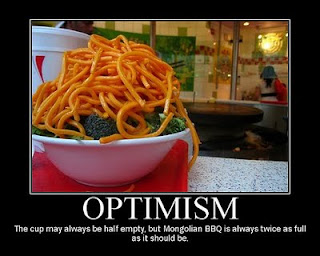Every organization has a culture and tone. There is one person who bears the primary responsibility for creating that atmosphere - be it positive or negative - and that would be the leader. If your teachers are unconcerned and dismissive of students, if your parents don't demonstrate a commitment to education, if your students are mean and nasty to one another, you might want to ask what messages are you sending by your actions (or inaction), words, and priorities.
I was reading the account of Pontius Pilate sentencing Jesus to death this morning and I was struck by Pilates' flippant attitude about Jesus being the King of the Jews. He mockingly called him the King of the Jews because he suspected that the Jewish leaders were envious. Well, this call was taken up by the soldiers who mocked Jesus with a purple robe, then hit him and spit on him. They took Pilate's lead and increased the mockery and degradation of Jesus. This same tone was taken by the crowds who called for his crucifixion. There, in a nutshell, is the influence of Pilate (and the religious leaders) who set the tone for that whole scene. So, what messages do you believe are most important to send in your school or organization. Here are a few that I try to instill where I'm working and living.
Appreciation - My Assistant Principal and I write Energy Boost notes as often as we see them.
Douglas Conant, formerly of Campbell Soup, wrote 10 personal notes every day to his staff. After a tough year, John Kralik wrote a thank you note every day for a year, then wrote the book
365 Thank Yous to chronicle his experience. Here are his
tips for writing the perfect thank you note. I recently went to the hospital for a heart problem and received the most impressive service I've every experienced. With great pleasure I wrote thank you notes to my doctors, the nurses, and the CEO of the hospital. I know the notes were well received, and conversely, it gave me a great boost to write and deliver the notes as well.
Conversation - Learning is social and so is leading. I like to get out and interact with teachers before school, during breaks, and any chance I get - sometimes about school related issues, sometimes about life. Both are equally valuable. I don't want to
act like I care. I actually do care. Teachers give their heart and soul to the profession and I appreciate that dedication and try and show it with my time and attention. It's also great to meet parents in the hallways, waiting for their kids or volunteering. I learn about their successes and struggles and find out which teachers they are pleased with and what issues are causing concern. When the leader goes out to see what is going on, the good news gets spread more often and the bad news gets handled more quickly.
Reading - One of the questions I almost always ask kids is, "What are you reading"? I want kids to know that I value reading and I'm a reader as well. I gladly share what I'm reading and try and find similar books for kids to read in the genre they are currently enjoying.
Learning - It goes without saying that if you want your students and teachers to constantly be learning, you need to be a learner as well. You must be reading, soaking up new information, observing best practices inside and outside your organization, asking questions, writing, thinking, innovating, taking risks, and failing as these are the ways that you learn.
So, this post started with a pretty sour example of negative leadership. The great news is that you can turn around a culture that is bent toward negativity with your next action, word, or thank you note. Why don't you get started today.


















